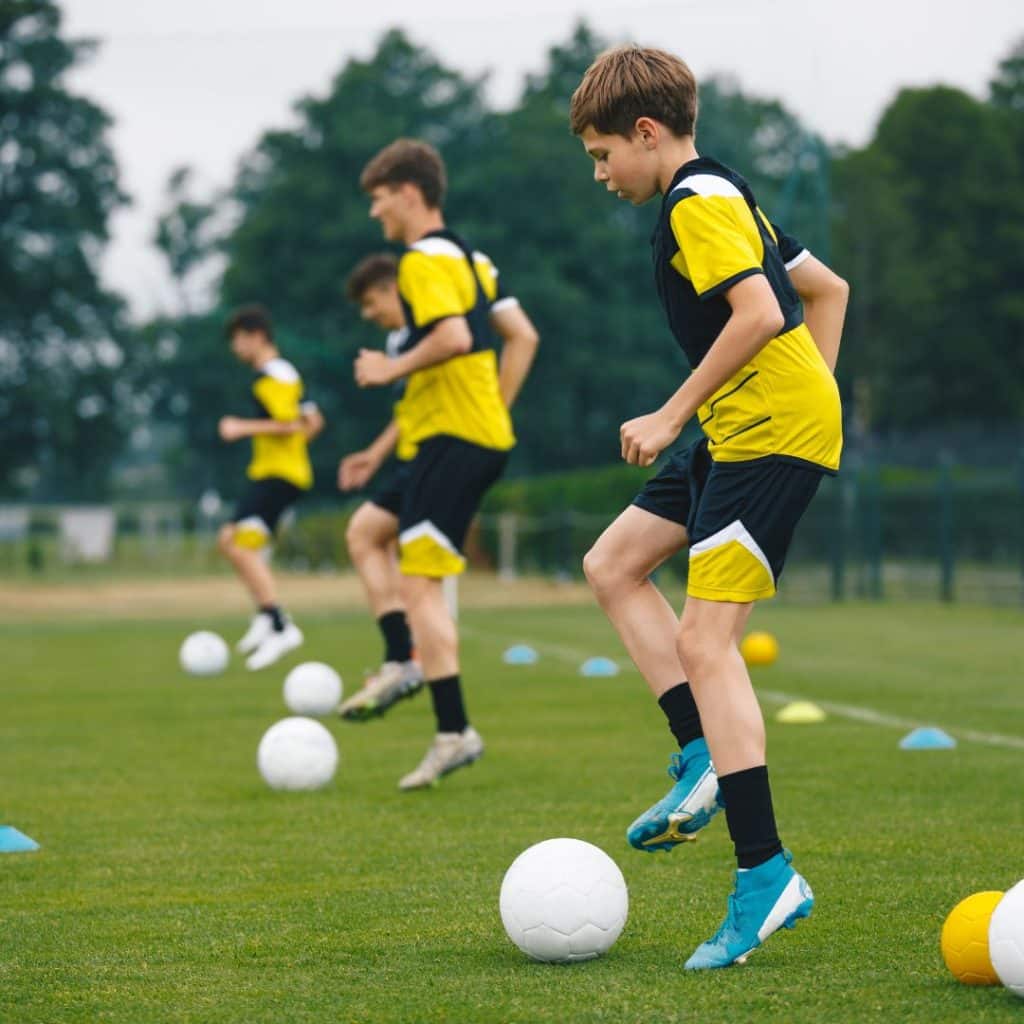The Olympics are in full swing, alighting many young athletes’ dreams of being on the podium like their heroes. While the path to Olympic success is challenging and reserved for a very small percentage of hard-working athletes, aspiring athletes and their parents should be aware of several risks. Three of the most common pitfalls young athletes encounter that can dash their Olympic dreams include overtraining, specializing in a sport too early, and neglecting cross-training.
The Dangers of Overtraining for Young Athletes
Overtraining is a significant concern for athletes of all ages, especially young athletes whose bodies are still developing.
“I have seen ten-year-old athletes have practice two hours a day, six days a week, and then weight train for an hour after,” said Dr. Chris McKenzie, physical therapist and owner of McKenzie Sports Physical Therapy. “Three hours a day is too much for their young bodies to handle.”
While hard work and dedication are essential for athletic success, overtraining can lead to burnout, overuse injuries, and mental fatigue. Athletes must find the right balance between pushing themselves to improve and allowing their bodies the necessary time to rest and recover. During rest, the body replenishes energy stores, repairs damaged tissues and adapts to the stress of training. Rest also aids in mental recovery, helping athletes stay motivated and focused.
Specializing in a Sport Too Early is Risky
Another risk for aspiring Olympic athletes is specializing in a single sport while they are still young. Athletes who specialize too early may miss out on developing a broad range of physical skills and may be more susceptible to overuse injuries associated with repetitive movements.
Children are often pushed to specialize in a single sport at an early age for several reasons. One common reason is the belief that early specialization will give them a competitive edge and increase their chances of success in that particular sport. Coaches, parents, and even young athletes may believe that focusing exclusively on one sport from a young age will lead to mastery and proficiency. While some specialization is necessary to develop elite-level skills, research shows that specialization should only occur after a young athlete is in late adolescence (over 18). Early specialization may seem like a pathway to success, but it hinders long-term athletic development.
“Athletes who specialize too early often experience repetitive stress on specific muscle groups or joints, leading to overuse injuries,” said Dr. McKenzie. “Some of these injuries are so serious surgery is necessary to repair them.”
The Importance of Cross-Training for Young Athletes
Along the same vein as specializing too early, not cross-training can be detrimental to one’s health. Engaging in a variety of activities, such as strength training, flexibility exercises, and other sports, can help athletes develop a more well-rounded skill set and reduce the risk of overuse injuries. Cross-training also provides mental and physical variety, which can help prevent burnout, keep athletes motivated, and help them continue to love their favorite sport.
Shoulder injuries are common in athletes who don’t cross-train because they often overuse the same muscle groups and neglect the development of opposing muscles. When athletes focus solely on one sport, the repetitive motions can lead to imbalances in muscle strength and flexibility. Over time, this imbalance can put excessive strain on the shoulder joint and surrounding muscles, leading to overuse injuries such as rotator cuff tears, tendonitis, and impingement syndrome.
“Cross-training helps to develop strength in opposing muscle groups, promoting proper posture and reducing the risk of overuse injuries by providing a more well-rounded and balanced approach to physical fitness,” said Dr. McKenzie.
Young athletes and their coaches need to be aware of these potential pitfalls and take steps to mitigate the risks. Parents should advocate for their young athletes and emphasize the importance of proper rest and recovery, delaying sport specialization until later in development and incorporating cross-training into their training regimen. By avoiding these pitfalls so many succumb to, athletes can increase their chances of reaching the Olympic stage and enjoying a successful and fulfilling athletic career.


